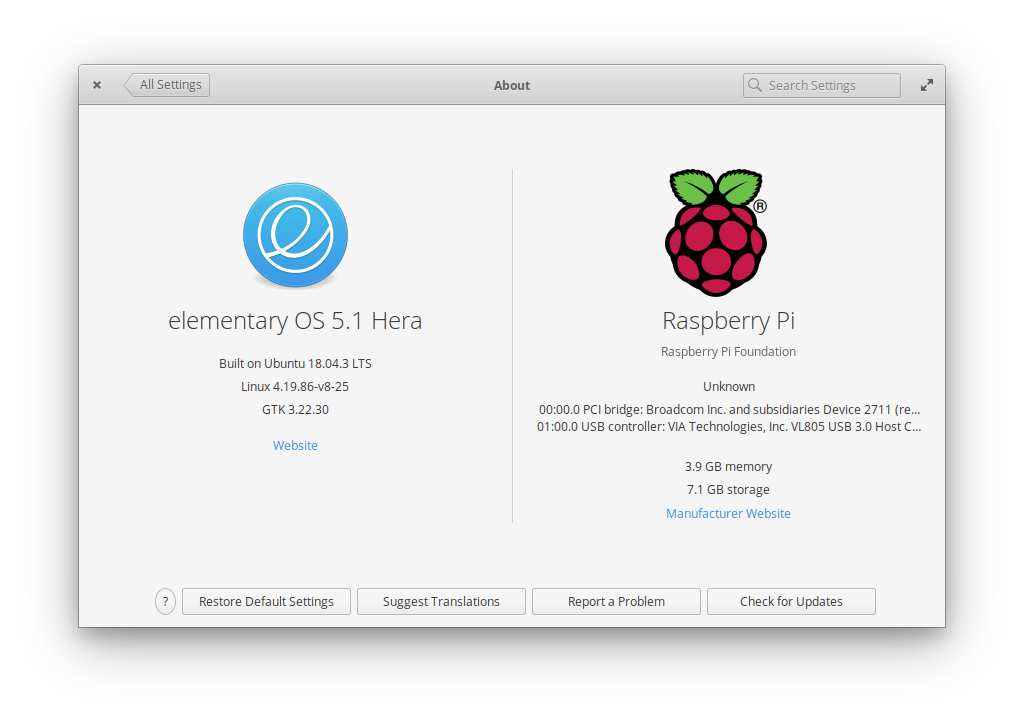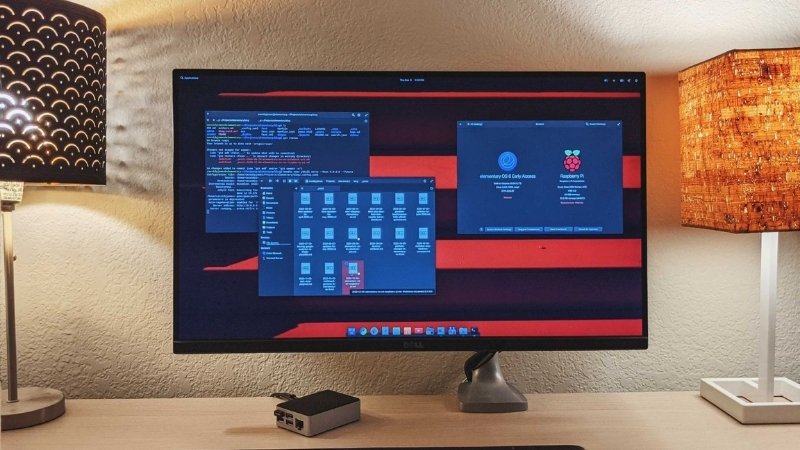
The developers of elementary OS have announced their experimental builds for the ARM-based Raspberry Pi 4 series.
This is not the first time elementary OS has ventured in ARM domain. They have been releasing their OS for ARM-based Pinebook Pro from August 2020.
The latest elementary OS 5.1 release codenamed Hera is getting the experimental build for Raspberry Pi 4.

Linux on ARM
As ARM CPUs are showing their competence as a replacement for x86 based CPUs more and more Linux distributions are trying to support ARM. We need to remind you that, Linux distros were supporting ARM for a long time. The first distribution to support ARM architecture was Debian back in the year 2000. Currently, many distros are supporting 64-bit ARM including Arch Linux, Ubuntu, Gentoo, Slackware, Manjaro, etc.
Why ARM?
ARM is proving great power efficiency, that’s why they are being heavily used in smartphones, tablets, and netbooks. Apple started its transition from Intel processor to its own Apple Silicon by releasing their M1 based Mac mini, MacBook Air, and MacBook Pro. Microsoft has also started to bring Windows 10 on ARM. Now, ARM is not only proving its power efficiency but also proving its performance side by side with x86.
Growing support for Linux desktop on Raspberry Pi 4
For a long time, mainly the server editions of Linux distributions were available on Raspberry Pi devices. But this is changing after Raspberry Pi 4.
The Raspberry Pi comes with 8 GB of RAM and it is pitching itself as a low cost desktop. With the improved hardware specification, running mainstream desktop Linux on Raspberry Pi now easier than ever.
This is the reason that Ubuntu also released its official image for Raspberry Pi 4 with Ubuntu 20.10 release.
How to get elementary OS image for Raspberry Pi 4?

elementary OS team published their build under their Early Access Builds program. This means dedicated sponsors of the elementary OS can download the Raspberry Pi 4 builds. You can also download their build and get instruction from this GitHub repository.
Since it’s an experimental release you shouldn’t expect everything to function properly here. There are known issues as graphics are partly hardware accelerated, 4k videos are not supported yet and sound settings are not saved across the boot. But after the boot process, you’ll like the smoothness of the OS and as a Raspberry Pi 4 owner, it’s worth giving a try.
- Even the biggest players in the Linux world don't care about desktop Linux users. We do.
- We don't put informational content behind paywall. Your support keeps it open for everyone. Think of it like 'pay it forward'.
- Don't like ads? With the Plus membership, you get an ad-free reading experience.
- When millions of AI-generated content is being published daily, you read and learn from real human Linux users.
- It costs just $2 a month, less than the cost of your favorite burger.
Become a Plus Member today and join over 300 people in supporting our work.









